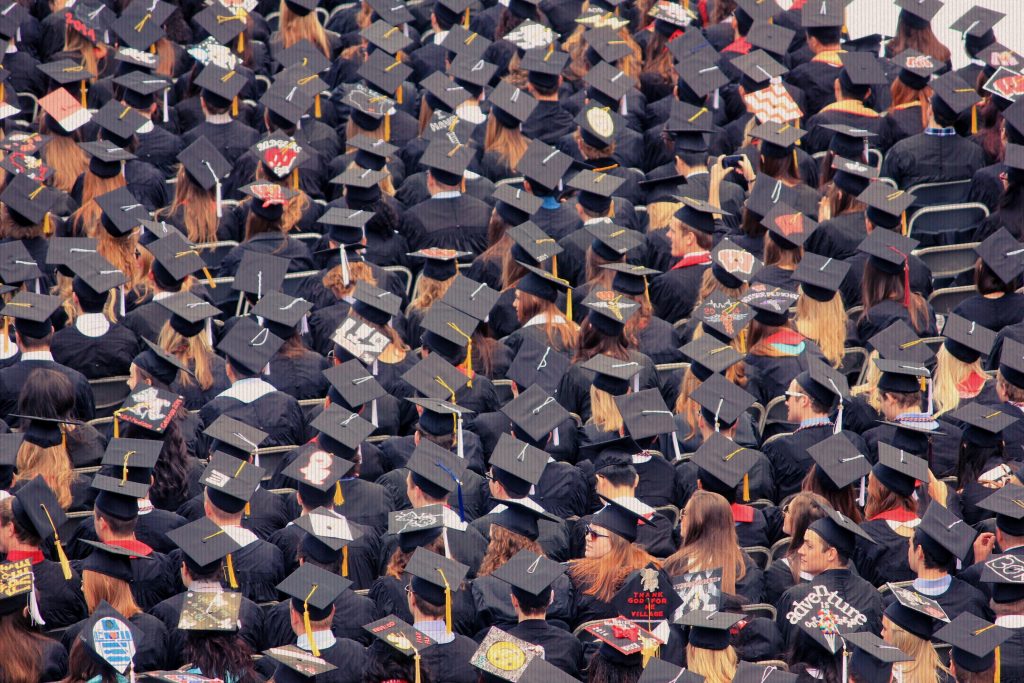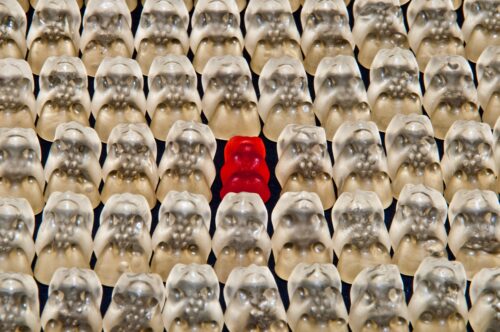The biggest crisis facing higher education is a consumerized understanding of students who seek credentialing above all else, and colleges that will sell themselves to the highest bidder.
The college admissions scandal offers a window into the gap that often exists between the public face of America’s “elite” and the social realities of the world they inhabit.
In a previous article I referred to the work of Anand Giridharadas, who has argued that large-scale philanthropy is a mechanism that allows the super-rich to maintain and legitimate a world they have created and can never be expected to dismantle. It is one that will continue to serve their interests, even at the expense of those who might otherwise be recipients of their largesse.
Americans, Alexis de Tocqueville argued, experience tremendous status anxiety, one produced by the dynamism of American political and economic life. The accumulation of wealth becomes a marker of self-worth in the competitive, atomized enterprise of social life. This dynamism allows for upward mobility, but it also leads to backward slippage. The super-rich have made their way upward, and they fear a world that cannot be sustained for their children. They’re not concerned about themselves slipping back, but they sure worry about their kids doing so, particularly if their children bear the marks of entitlement, privilege, softness, and celebrity.
The college and university system has become a central player in maintaining elite status. Indeed, the more students from a university come from privilege, the more likely they are to throw it around as a term of condemnation. But what if your underperforming kid can’t get into a good school on his or her own? The obvious solution is to leverage your wealth to manipulate the system to your child’s advantage.
The result is a meritocracy promulgating itself independent of any concern for actual merit.
In so doing, our cultural and economic elites are giving the lie to the idea that they are dedicated to ameliorating inequality, because by rigging the system in this fashion they are closing off opportunities to people down the scale whose children actually deserve to get into these schools.
In other words, despite whatever public protestations or philanthropic gestures they might make, the people at the top are dedicated to making sure they and their progeny stay there.
Part of this is perfectly understandable. Any parent will want a world where their children are successful and well off. Ideally, we’d like our children to be better off than we are. It’s proper for a parent to prefer the well-being of his or her child to that of other people’s children, and to do everything in his or her power, within moral limits, to advance that interest. More than that, however, it is proper for a parent to push their children into the world, making them moral agents who are responsible for their own choices. In any case, we expect the game to be played fairly.
It’s not clear what if anything in this might be “illegal,” but it undercuts some of the basic principles of equal opportunity and fair play that are bedrocks of modern democracy. As Tocqueville observed, the elimination of primogeniture was one of the first features of American life. While on the one hand it introduced generational division, on the other it required each subsequent generation to prove itself, to not live parasitically off the achievements of others. It allowed for both greater wealth creation and distribution, preventing its static concentrations in the hands of a few. Granted, Tocqueville noted there were serious downsides to this, but it derived from a belief that each generation had an obligation to fend for itself. Inheritance could be no occasion for indolence.
The list of parents involved in the scandal provides a nice snapshot of people who publicly model “doing good” and being on the right side of social issues, while behind the scenes they try to game the system. They would rather provide a sop to the people beneath them than allow for a level playing field where some might rise while others fall.
But the misdeeds of the parents should not blind us to the corrupt soul of the modern university system. The biggest crisis of the modern academy is not its ideological extremity, although that is a serious problem, but how ideology has become a fig leaf over the corporatization of the academy. On the demand side this has resulted in a consumerized understanding of students who seek credentialing above all else, and on the supply side colleges who will sell themselves to the highest bidder.
What is lost is any sense of educating: who should be doing it, to whom, in what ways, and to which ends. We are producing a generation of “excellent sheep” and coddled adolescents who, worse than being unprepared to live as adults, are know-nothings. The one inheritance we ought to be passing on – the rich array of great cultural works – has been negated and in its place stands an inheritance based upon the wealthy’s ability to pay to play.
No culture can long survive this kind of substitution.






